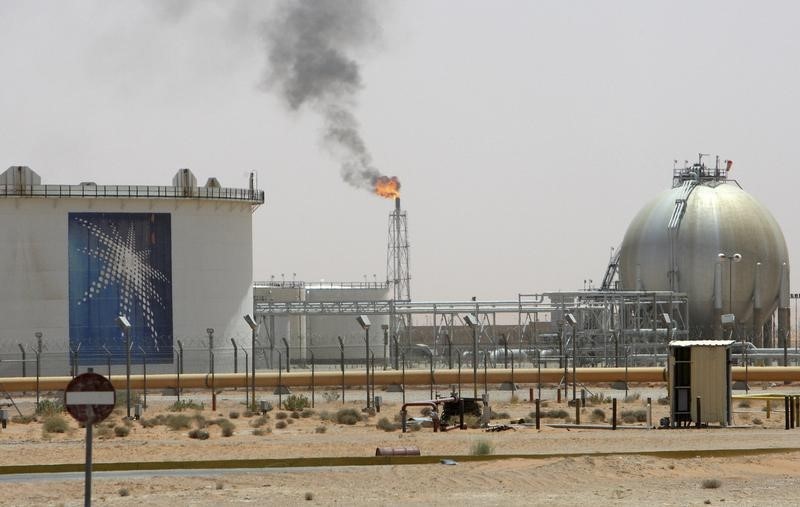© Reuters.
Investing.com– Oil prices fell in Asian trade on Monday after Saudi Arabia slashed the prices of its Asian crude exports to over two-year lows, although losses were limited as traders watched for any potential supply disruptions from the Middle East.
An escalation in the Israel-Hamas conflict, coupled with continued disruptions in shipping activity in the Red Sea, saw oil prices mark a strong first week of 2024.
But bigger gains were held back by a rebound in the dollar, while concerns over demand also remained in play following another round of weak economic data from China.
Saudi Arabia’s price cuts also presented another sign of weakness to markets, as the world’s largest oil exporter grappled with a slowdown in demand, particularly in Asia.
expiring March fell 0.4% to $78.48 a barrel, while fell 0.4% to $73.57 a barrel by 20:02 ET (20:02 GMT).
While crude prices marked some gains over the past week, they were still nursing an over 10% loss through 2023. High interest rates and slowing economic activity are expected to weigh on demand this year, while oil markets are also expected to remain largely well-supplied.
Saudi Arabia cuts prices on oil exports amid market weakness
Saudi Arabia slashed the price of its flagship Arab Light crude for Asian customers to a 27-month low, state producer Saudi Aramco (TADAWUL:) said on Sunday.
Prices on February-loading Arab Light to Asia were cut by $2 below the Oman/Dubai regional benchmark, while prices on crude supplied to parts of Europe and the Mediterranean were also cut by as much as $2 to a hair above the benchmark.
The move comes as the country faces increased competition for its crude exports from limited demand and increased oil production by other Middle Eastern producers.
The price cuts also come about a month after new production cuts from the Organization of Petroleum Exporting Countries and allies (OPEC+) for 2024 largely underwhelmed markets. The cuts, coupled with record-high U.S. production, failed to convince markets that global oil supplies will tighten meaningfully in the first half of 2024.
While the Israel-Hamas conflict provides some challenges to this outlook, its actual impact on oil supplies so far has remained limited. The U.S. has also stepped in to fill any major supply shortfalls in Atlantic oil trade.
Markets await more rate-cut, inflation cues
Crude markets were also on edge before a string of key U.S. and Asian economic readings this week. Inflation readings from , , and the are on tap this week, and are expected to provide more cues on economic strength and the path of interest rates.
A stronger-than-expected U.S. reading on Friday saw markets sharply curtail bets that the Federal Reserve will cut interest rates early this year- a scenario that heralds limited support for oil prices.
China, the world’s largest oil importer, is also expected to show another month of disinflation in December, presenting a weak outlook for global crude demand as the country struggles with a sluggish economic recovery.
Read the full article here

